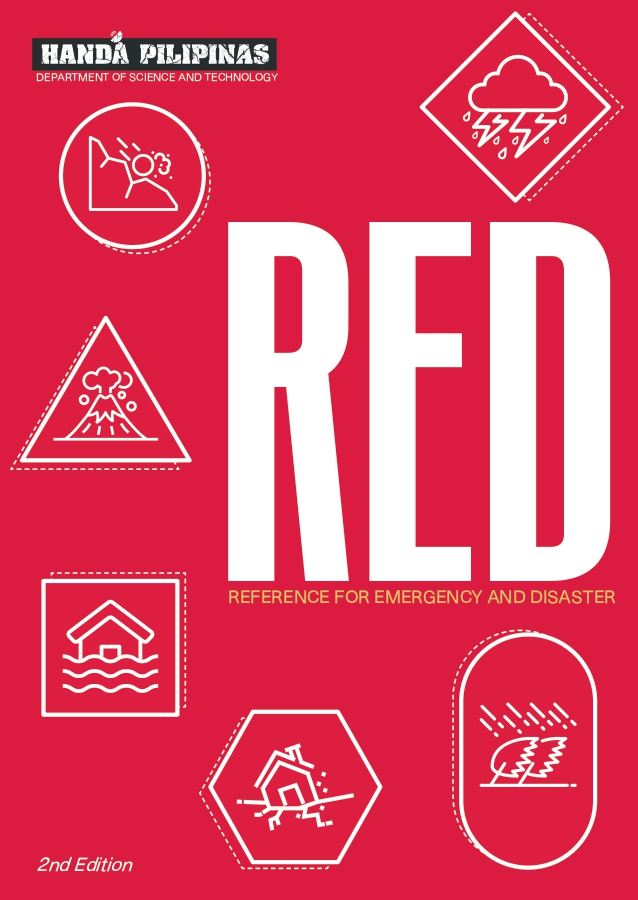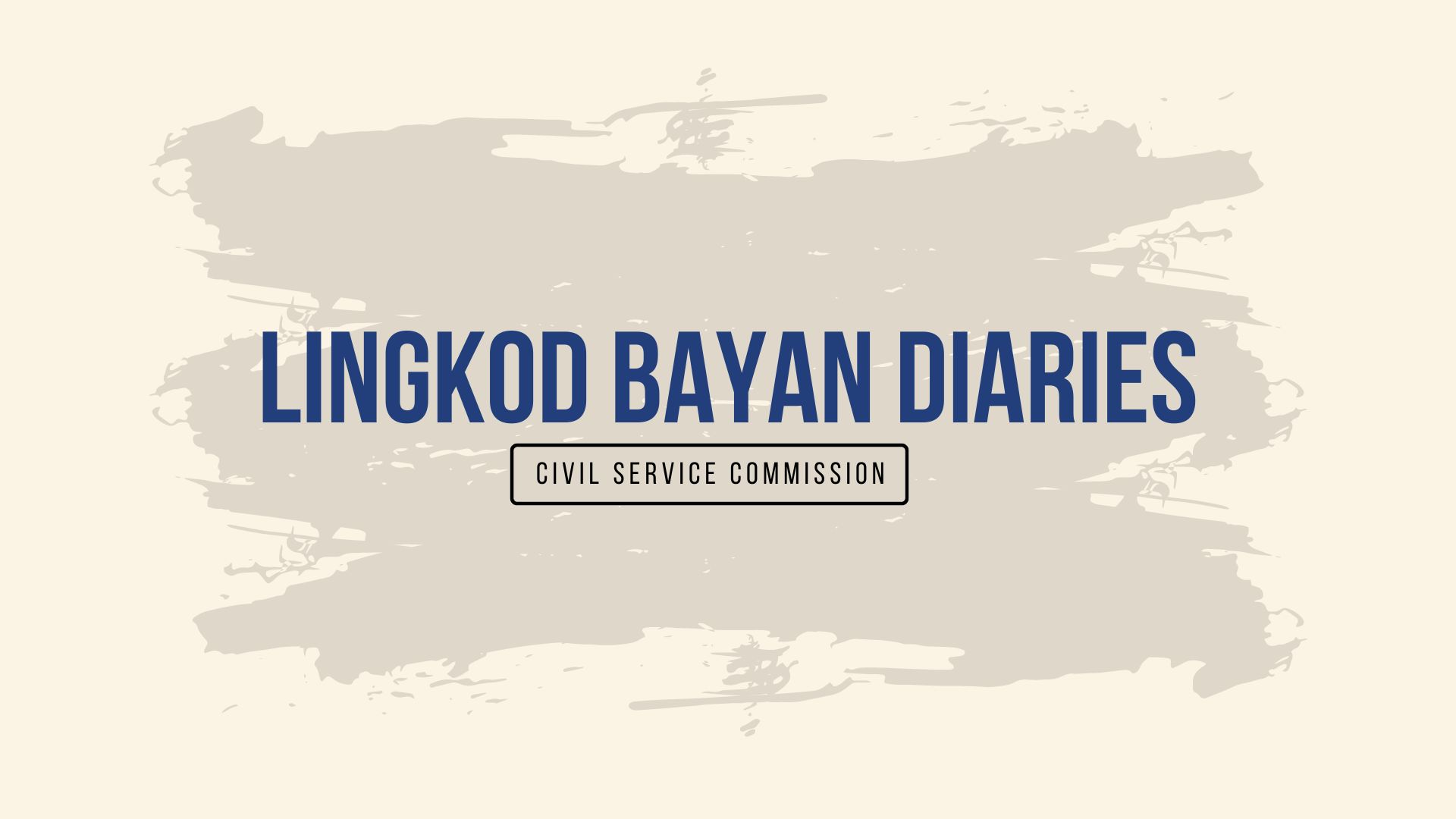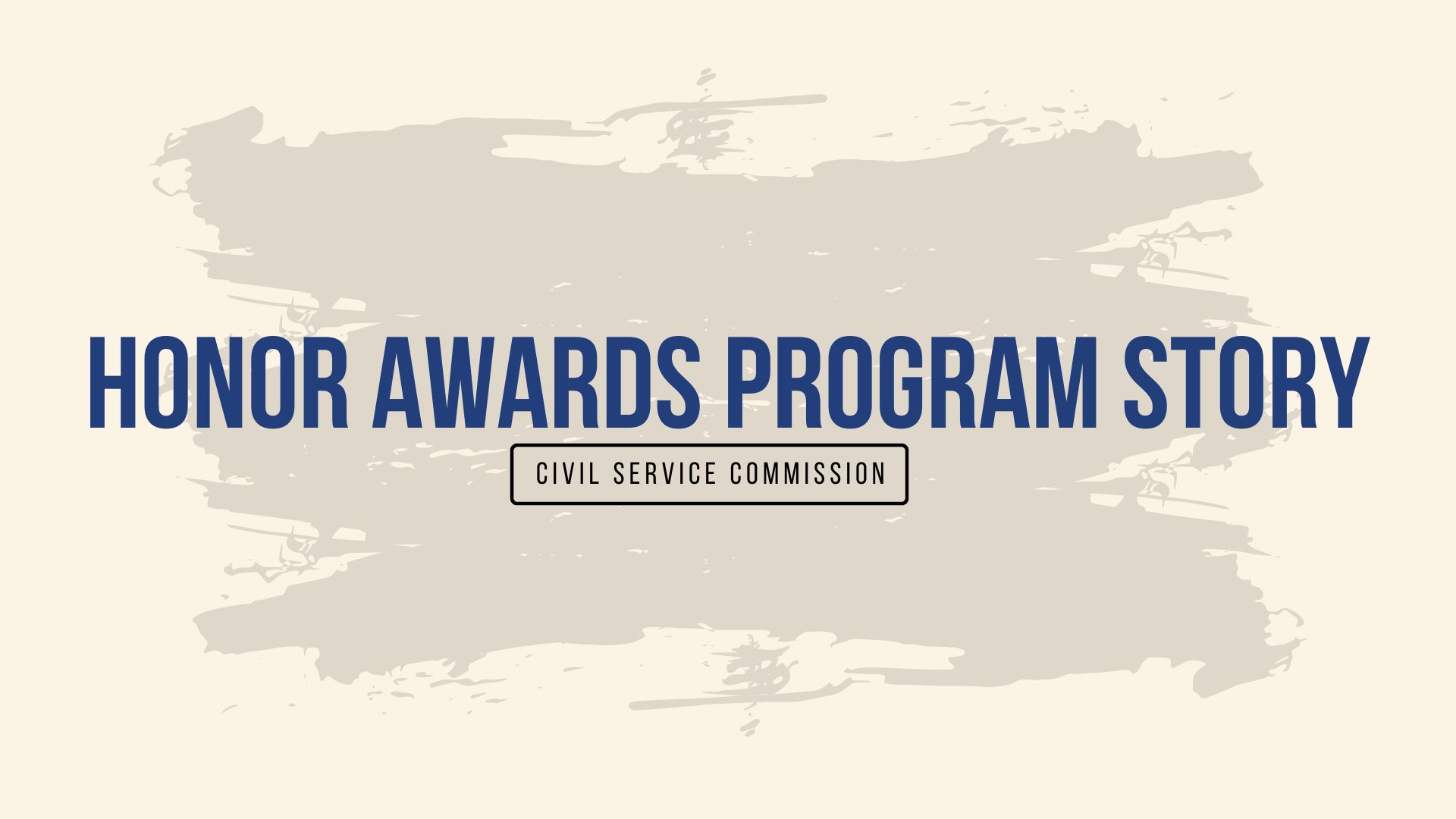By Rhea Mae B. Ruba, DOST-GAD Unit
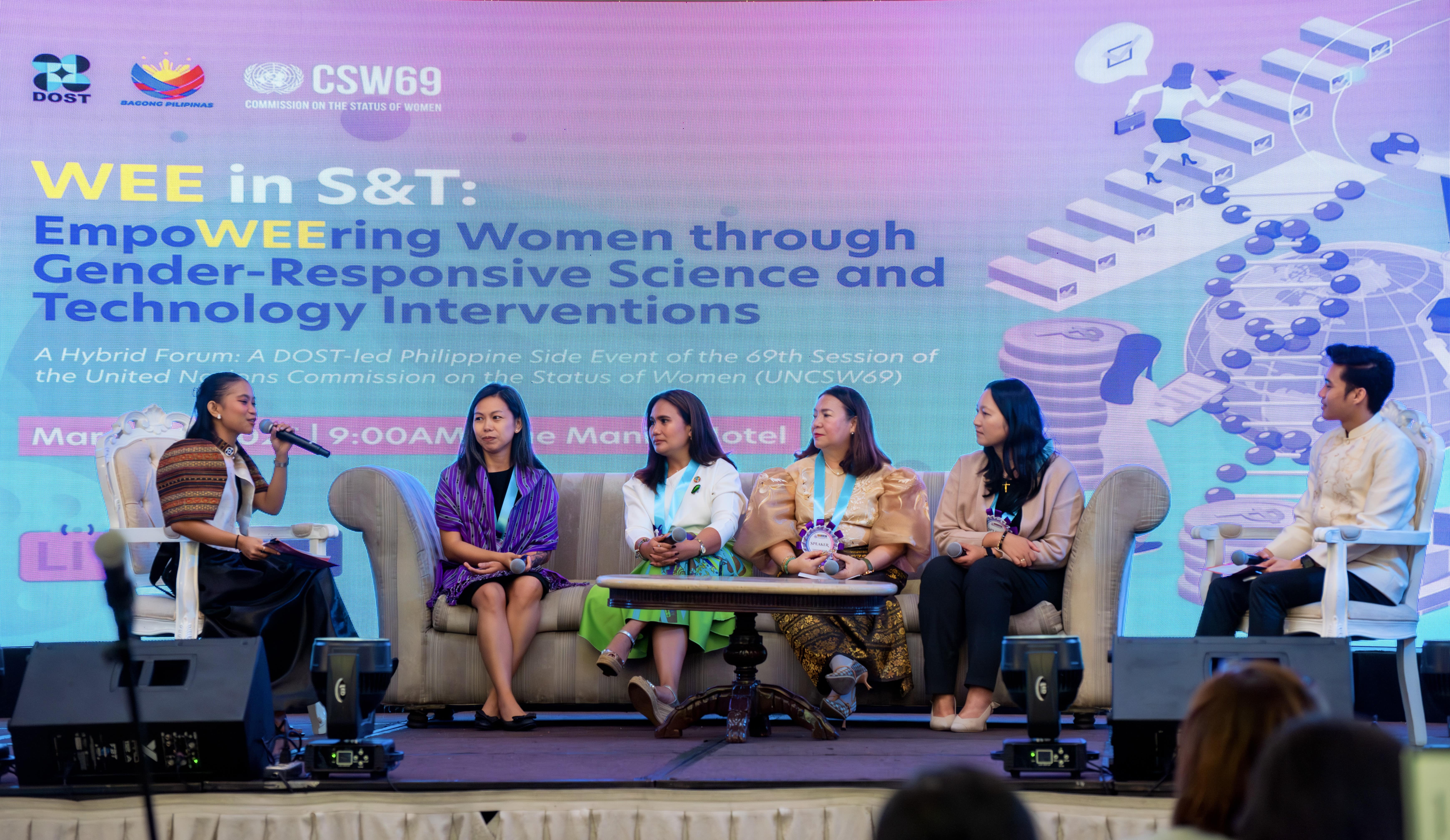 Creating a deeper discussion of the WEE in S&T through an open forum during the DOST-led Philippine Side Event of the UNCSW69, with the event hosts and on-site speakers. (Photo from Xyrus Ivan B. De Gracia, DOST-STII)
Creating a deeper discussion of the WEE in S&T through an open forum during the DOST-led Philippine Side Event of the UNCSW69, with the event hosts and on-site speakers. (Photo from Xyrus Ivan B. De Gracia, DOST-STII)
Economic empowerment is crucial in enhancing women’s economic participation and empowerment, improving well-being, providing better financial stability, and alleviating poverty. One of the key drivers of this economic empowerment is the integration of Science and Technology (S&T), a powerful tool that opened opportunities, resources, skill development, and entrepreneurship platforms.
Women must not be left behind as the world becomes reliant on science and technological advancements. Women’s economic empowerment (WEE) is a matter of equality and is fundamental to achieving sustainable and inclusive development. WEE enables women to engage in meaningful employment, benefit from social protections, seize economic opportunities, manage resources, and have the independence to make decisions about their lives and bodies.
In celebration of the 2025 National Women’s Month, the Department of Science and Technology (DOST) showed that S&T initiatives are crucial in enhancing women’s economic empowerment and bridging the gender gap in economic participation. This was the hybrid forum “WEE in S&T: EmpoWEEring Women through Gender-Responsive Science and Technology Interventions,” which took place on March 28, 2025, at The Manila Hotel.
The hybrid forum serves as the DOST-led Philippine Side Event of the 69th Session of the United Nations Commission on the Status of Women (UNCSW69). This event stands as an international platform for DOST to showcase its best practices and initiatives aimed at preparing and empowering women for opportunities and careers in a knowledge-based economy. The UNCSW69 is part of a global efforts to change the narrative surrounding women, by bringing together leaders and communities across the world to share their contributions, discuss initiatives, and address questions related to gender equality and women empowerment.
Unveiling the Significance of WEE in S&T Fields
“Empowerment exists at different levels. It begins with welfare, which addresses meeting basic needs; access, which concerns the availability of resources and opportunities; conscientization, whereby women become aware of gender injustices; participation, where women take part in decision-making; and control, where women can autonomously make decisions regarding their resources and opportunities,” emphasized Prof. Rowena A. Laguilles-Timog, Deputy Director at the UP Center for Women’s and Gender Studies, as she set the tone for the discussion.
According to Prof. Timog, WEE remains a challenge within the current market capitalist system. Therefore, it is essential to amplify and support good practices at every level of empowerment, while also focusing on the factors that hinder progress.
The status of WEE across various sectors was highlighted by the distinguished women speakers at this hybrid forum. Dr. Trang Nguyen, Founder and Chief Technology Officer at Vbee, elaborated the topic “WEE through Digital Transformation and AI”; Ms. Cherrie Atiliano, Founding Farmer, CEO, and President of AGREA Agricultural Systems, discussed the topic “WEE through Agriculture and Entrepreneurship”; and Ms. Gwyneth Anne Palmos, Programme Analyst of Climate Action at UNDP Philippines, presented the topic “WEE: The Role of Development Organizations in Empowering Women to Address Climate Change and Sustainability Issues.”
These empowered women speakers are breaking stereotypes by demonstrating that women can actively participate, contribute to, and lead fields traditionally dominated by men, such as Information and Communication Technology, Agriculture and Entrepreneurship, and other S&T fields. These women serve as exemplary leaders, showing that when women lead in S&T, they do more than innovate and provide solutions as they inspire communities to rise and shape a better future for everyone.
The powerful discussions and sessions were applauded by attendees of the hybrid forum. On-site, there were 150 people, including DOST officials and employees, MSME Stakeholders from DOST-National Capital Region and DOST-CALABARZON, academe, industry partners, and NGOs. Online, there were 500 participants attended via Zoom from all over the Philippines and the world including the 22 countries in total such as the United States of America, Singapore, Japan, India, Vietnam, United Kingdom, Australia, Nigeria, Zimbabwe, The Gambia, Haiti, Netherlands, Thailand, Georgia, South Africa, Spain, Kenya, Uganda, Brazil, Colombia, Venezuela, and The Bahamas. Also present in the virtual attendees are the DOST employees, GAD coordinators, graduate students, university researchers, translators, TV producers, creative artists, consultants, teachers, diplomats, and human rights defenders.
The discussions and participation of a diverse and global audience highlight the importance of empowering women in S&T to drive technological advancements and socio-economic progress worldwide. This is aligns with the DOST’s initiatives, which aim to cultivate an equitable and inclusive environment where both men and women can thrive.
DOST’s Flagship Programs and Projects for WEE
In a message from DOST Secretary Renato U. Solidum, Jr., he emphasized that the S&T initiatives of the Department aim to contribute to the achievement of the Sustainable Development Goals (SDG) including SDG No. 5 which focuses on Gender Equality.
“DOST has been in the forefront of implementing gender-responsive programs designed to improve economic empowerment of women through business development training, access to funding, and market linkages,” Sec. Solidum stressed.
In support, DOST Assistant Secretary for Administrative and Legal Affairs, Dr. Diana L. Ignacio, who oversees the GAD Unit and serves as the DOST-wide GAD focal person, shared that the Department has adopted the Micro, Small, and Medium Enterprise (MSME) Development Plan for 2023-2028 through Memorandum Circular No. 73.
One of DOST's flagship programs and projects that provides technical assistance and capacity-building support to women micro-entrepreneurs (WMEs) is the Small Enterprise Technology Upgrading Program (SETUP). Another key program, the Community Empowerment through Science and Technology (CEST), plays a significant role in uplifting communities. These programs have created thousands of jobs and livelihoods, particularly in disadvantaged areas.
Other initiatives of DOST that specifically created for women are the iWOMEN or Innovations for Women Enterprises that supports WMEs through innovations and technology based assistance, and WHWISE or Women Helping Women: Innovating Social Enterprises which aids women-led social enterprises by providing access to technology, training, mentorship, and funding.
“Investing in women and girls is undoubtedly the most effective pathway to achieving Sustainable Development Goals, including peace and security. When women are economically empowered, entire economies grow,” Asec. Ignacio remarked.
DOST’s SETUP and CEST Beneficiaries’ Testimonials for WEE
The DOST invited women beneficiaries of SETUP and CEST programs to share how these transformative initiatives have impacted and revolutionalized their lives. Their inspiring testimonials captivated the attendees of this hybrid forum, demonstrating that women can thrive in the fields of S&T by leveraging advancements to achieve economic empowerment.
One standout SETUP beneficiary, Ms. Maria Teresa C. Santiano, the owner and general manager of Tropical Palm Herb Manufacturing, shared her remarkable success story. She transitioned from selling kamote tops in the streets to becoming a multi-awarded MSME, a journey made possible through her determination and the support of DOST. Her experience exemplifies the power of women in entrepreneurship.
“With the help of DOST’s SETUP program, I was able to acquire my first major machine. This machine became the backbone of my herbal processing business, generating millions of pesos over the years,” Ms. Santiano proudly shared.
DOST provided advanced processing technologies to enhance the quality, efficiency and scalability of the business operations of Ms. Santiano, ensuring that her herbal products met the rigorous standards of both local and international markets.
Another inspiring success story came from DOST’s CEST beneficiary, Hon. Lota L. Manalo, the Mayor of Lobo, Batangas and owner of Ginga Agrifood Manufacturing Enterprise Inc., who became committed to supporting her community long before being elected as a public servant.
Hon. Manalo was one of the pioneers of KASAMA KA or Kababaihan Sama-sama sa Kaunlaran, an established non-government entity that provides livelihood opportunities to women in 10 barangays in Batangas. With the help of DOST’s CEST program, the KASAMA KA members and other women’s organizations gained access to livelihood training sessions that utilized all natural locally grown ingredients to create high-quality products through the application of advanced technologies.
“This is the goal of our projects and programs. We want to empower and give voice to the strength of women by entrusting them with huge projects and technologies,” Hon. Manalo confidently expressed.
The achievements of Ms. Santiano, and Hon. Manalo, illustrate how women from remote communities have transitioned from traditional roles as housewives and mothers to becoming businesswomen and entrepreneurs. By creating jobs, offering opportunities, and leading by example, these two women have empowered themselves and uplifted their communities.
The testimonials, discussions, and sessions of this DOST-led hybrid forum underscored the crucial role of S&T in providing accessible innovations and technologies. These advancements, along with the markets they create, amplify women's potential to become mentors and conduits of opportunities, for other women and marginalized sectors of society.
This successful DOST event was organized through the initiatives of DOST Gender and Development Unit headed by Asec. Ignacio, in partnership with the DOST-CALABARZON led by Regional Director Emelita P. Bagsit. The hybrid forum demonstrated DOST’s commitment to mainstreaming gender equality and women empowerment by advancing S&T initiatives that support women’s economic empowerment.
 Awarding of certificates of appreciation to the resource speakers and sharers of the hybrid forum, alongside DOST top officials. (Photo from Xyrus Ivan B. De Gracia, DOST-STII)
Awarding of certificates of appreciation to the resource speakers and sharers of the hybrid forum, alongside DOST top officials. (Photo from Xyrus Ivan B. De Gracia, DOST-STII)
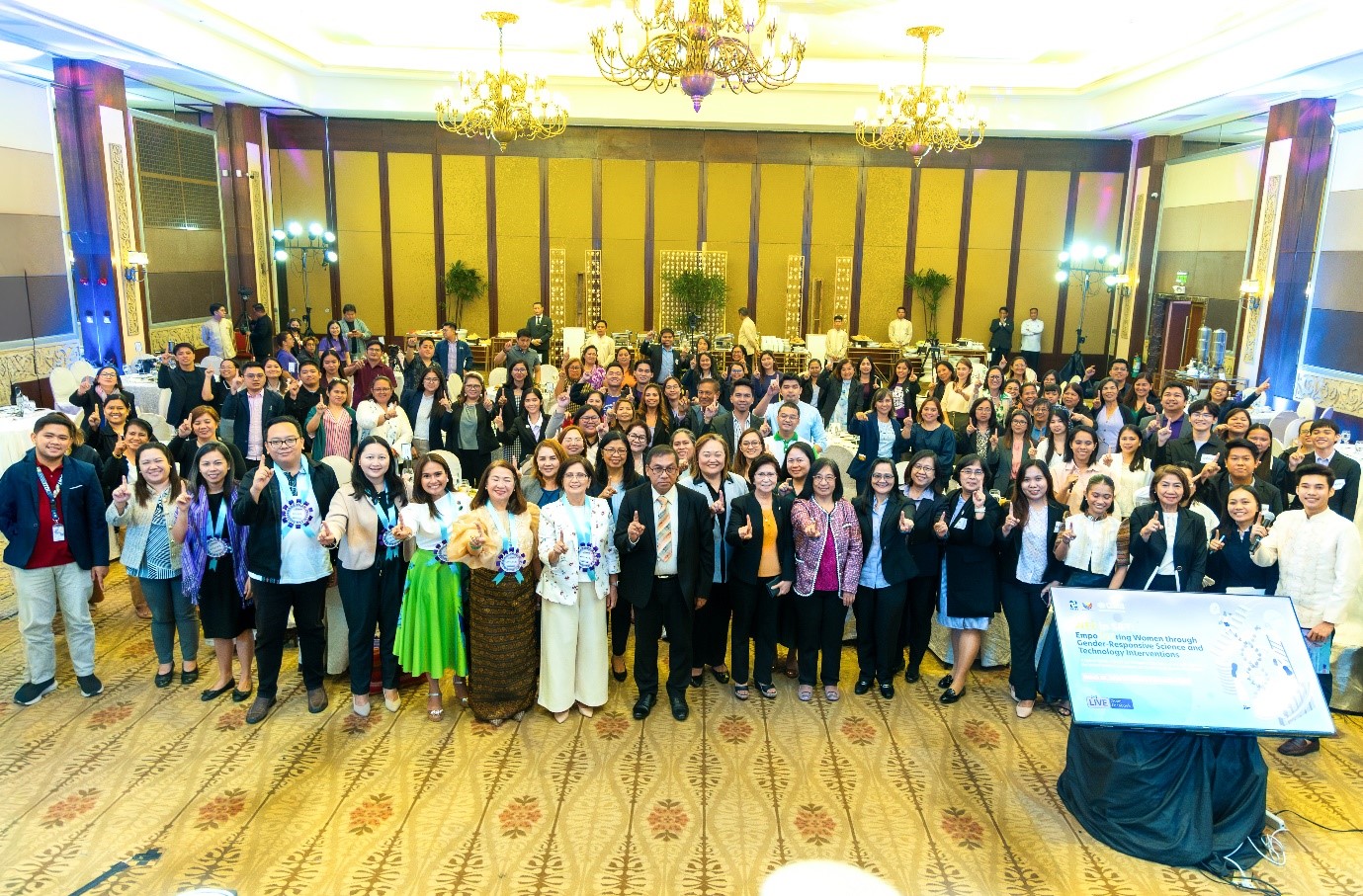 The 150 on-site attendees, along with the distinguished resource speakers, sharers, and DOST officials, gathered for a photo opportunity during the hybrid forum. (Photo from Xyrus Ivan B. De Gracia, DOST-STII)
The 150 on-site attendees, along with the distinguished resource speakers, sharers, and DOST officials, gathered for a photo opportunity during the hybrid forum. (Photo from Xyrus Ivan B. De Gracia, DOST-STII)





